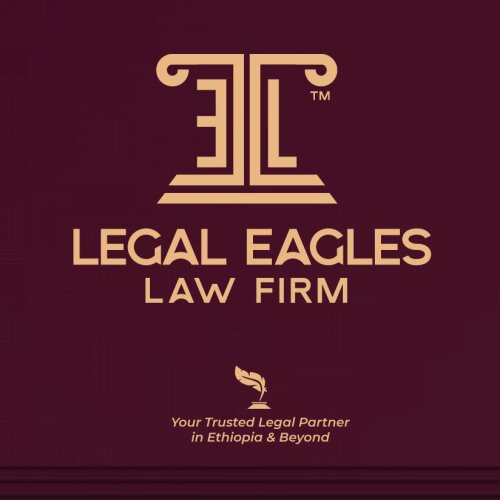Best Energy, Environment & ESG Lawyers in Addis Ababa
Share your needs with us, get contacted by law firms.
Free. Takes 2 min.
List of the best lawyers in Addis Ababa, Ethiopia
About Energy, Environment and ESG Law in Addis Ababa, Ethiopia
Energy, Environment and ESG (Environmental, Social, and Governance) law is an emerging field in Addis Ababa, Ethiopia. These laws are designed to manage the development and use of natural resources, promote sustainable environmental practices, and encourage responsible business conduct. With rapid urban development, industrialization, and investments in renewable energy, Addis Ababa faces both opportunities and challenges in balancing growth with environmental protection and social responsibility. Regulatory frameworks in this area are evolving, aiming to address issues such as environmental impact, carbon emissions, clean energy transitions, corporate transparency, and community involvement.
Why You May Need a Lawyer
There are several important situations where engaging a lawyer specializing in energy, environment and ESG law becomes crucial in Addis Ababa:
- Starting or expanding a business that uses significant natural resources or energy
- Seeking permits or licenses for construction, mining, or energy production projects
- Facing environmental compliance issues or potential penalties for breaches
- Dealing with land ownership or land use claims related to environmental matters
- Addressing disputes with government agencies or community stakeholders
- Navigating requirements for environmental impact assessments (EIA)
- Need for ESG compliance or reporting to attract responsible investment
- Handling pollution, waste management, or hazardous substances concerns
- Understanding new renewable energy incentives or green finance options
- Protecting community or indigenous rights impacted by resource projects
Local Laws Overview
Several key laws and regulations govern the energy, environment and ESG landscape in Addis Ababa, Ethiopia:
- Proclamation on Environmental Impact Assessment: Requires businesses and developers to undertake environmental impact assessments for projects likely to affect the environment.
- Energy Laws: Supervise energy production, distribution, and consumption. Ethiopia's focus on hydropower and renewables shapes rules for licensing and operation.
- Environmental Pollution Control Proclamation: Sets standards for pollution, hazardous waste management, and penalties for violations.
- Urban Land Lease Holding Proclamation: Regulates land allocation and use, including green spaces and industrial zones.
- Water Resources Management Proclamation: Guides the sustainable use of water resources and requires permits for industries using or discharging water.
- Labour and Social Welfare Laws: Govern safe labor practices and social responsibility, supporting aspects of ESG.
- Corporate Governance Directives: Encourage transparency and responsible corporate practices, which are central to ESG standards.
- International Agreements: Ethiopia is signatory to global treaties such as the Paris Agreement, influencing local environmental and energy policies.
Enforcement is mainly handled by bodies such as the Ethiopian Environmental Protection Authority, the Ministry of Mines and Energy, and relevant municipal departments in Addis Ababa.
Frequently Asked Questions
What is an Environmental Impact Assessment (EIA), and when is it required?
An EIA is a process to evaluate the likely environmental effects of a proposed project. It is required before starting any major development or investment that may impact the environment, such as construction, mining, or energy generation in Addis Ababa.
How are pollution and waste managed in Addis Ababa?
The Environmental Pollution Control Proclamation sets out rules for waste management, air and water pollution standards, and proper disposal of hazardous substances. Businesses must comply with these standards and may need special permits to operate.
What does ESG mean for companies operating in Addis Ababa?
ESG refers to environmental, social, and governance criteria that guide responsible and transparent business practices. Companies are encouraged or required to disclose their impacts, manage risks related to the environment, labor, and governance, and demonstrate social responsibility.
Are there incentives for using renewable energy?
Yes, the government encourages investment in renewable energy through various incentives, such as tax breaks, affordable land leases, and fast-track licensing for solar, wind, and hydroelectric projects.
What penalties exist for violating environmental laws?
Penalties can include fines, business license suspension or revocation, cleanup orders, and, in severe cases, criminal prosecution. Enforcement agencies take action based on the severity of the violation.
How can I acquire a license for an energy project?
The Ministry of Mines and Energy oversees the licensing process, which involves submitting project proposals, conducting EIAs, paying required fees, and fulfilling safety and sustainability requirements.
Can communities object to projects that affect their environment?
Yes. Community consultation is required as part of the EIA process. Affected communities can raise objections, and authorities must consider these concerns before granting approvals.
What is the role of the Ethiopian Environmental Protection Authority?
This authority enforces environmental policies, monitors compliance, evaluates EIAs, and ensures that both public and private sector activities meet legal and sustainability standards.
Do international standards apply in Ethiopia?
International agreements and best practices often influence local laws and policies. Multinational investors and larger companies may also comply with global ESG reporting frameworks.
What should I do if my business is accused of environmental harm?
Consult a lawyer immediately to assess the situation, respond to any allegations, engage with authorities, and develop a compliance or remediation plan if needed.
Additional Resources
- Ethiopian Environmental Protection Authority (EPA) - enforces national environmental policies and oversees environmental compliance
- Ministry of Mines and Energy - regulates the energy sector and manages project licensing
- Addis Ababa City Administration Environmental Protection and Green Development Commission - deals with city-level environmental management, green initiatives, and land use
- Ethiopian Investment Commission - provides information on laws and incentives for investors
- Chambers of Commerce and sectoral associations - offer trainings and practical guidance for businesses
- Legal aid centers at local universities and NGOs focusing on environmental and social justice
Next Steps
If you require legal advice or representation in energy, environment, or ESG matters in Addis Ababa:
- Identify your specific legal needs, such as licensing, compliance, dispute resolution, or community engagement
- Gather any relevant documents: contracts, permits, notices, or correspondence with authorities
- Contact a lawyer or law firm experienced in energy and environmental law, or ESG matters
- Prepare a list of questions and concerns to discuss with your lawyer
- Engage in consultation to understand your rights, obligations, and the best course of action
- Explore public resources, regulatory agencies, or business associations for additional support or information
Taking proactive legal advice helps you comply with local laws, minimize risks, and contribute positively to sustainable development in Addis Ababa.
Lawzana helps you find the best lawyers and law firms in Addis Ababa through a curated and pre-screened list of qualified legal professionals. Our platform offers rankings and detailed profiles of attorneys and law firms, allowing you to compare based on practice areas, including Energy, Environment & ESG, experience, and client feedback.
Each profile includes a description of the firm's areas of practice, client reviews, team members and partners, year of establishment, spoken languages, office locations, contact information, social media presence, and any published articles or resources. Most firms on our platform speak English and are experienced in both local and international legal matters.
Get a quote from top-rated law firms in Addis Ababa, Ethiopia — quickly, securely, and without unnecessary hassle.
Disclaimer:
The information provided on this page is for general informational purposes only and does not constitute legal advice. While we strive to ensure the accuracy and relevance of the content, legal information may change over time, and interpretations of the law can vary. You should always consult with a qualified legal professional for advice specific to your situation.
We disclaim all liability for actions taken or not taken based on the content of this page. If you believe any information is incorrect or outdated, please contact us, and we will review and update it where appropriate.
Browse energy, environment & esg law firms by service in Addis Ababa, Ethiopia
Addis Ababa, Ethiopia Attorneys in related practice areas.

















